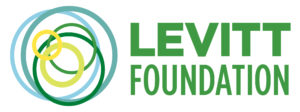
When Levitt Foundation Executive Director Sharon Yazowski got together with other producing organizations across the country to float the idea of a webinar for performance venues, little did she know that the dominos would start falling and her private foundation would join with IAVM for staff training for the organization’s six (and soon to be seven) venues that feature free concerts in an outdoor setting for their communities.
We’re all aware of the incidents that have been happening on public spaces across the country over the past two years,” she said. “All of our venues are outdoor spaces. We have become more proactive in terms of how we are preparing for unfortunate situations should they happen.”
That very scenario, in fact, played out last June when protesters disrupted an outdoor concert at the Levitt Pavilion Arlington (Texas) in a demonstration against a grand jury’s decision not to indict a police trainee who fatally shot a teenager the previous year. Two of the protesters were reportedly armed with rifles. One person with an AK-47 was arrested for disorderly conduct at the concert by the Humming House band, which reportedly drew an audience of about 3,000 people.
“The protesters marched on the lawn and wanted to get on stage, so it was an incident that disrupted the performance,” Yazowski said. “It became very clear that these sorts of things could happen at Levitt venues because they are open to the public. The executive director at the venue, Patti Diou, reached out to (IAVM Director of Education) Mark Herrera because she had heard him speak during the webinar.”
Herrera conducted onsite training with the Levitt Arlington team, and after Diou reported back to Yazowski that it was an “incredibly positive experience and we should provide the training for all the executive directors at the venues,” the wheels were set in motion for the group to become proactive in its support and resources to its venues across the country.
 “We invited Mark to join our executives,” Yazowski said. “It was a wonderful experience and really just the tip of the iceberg. The training was set to get everyone’s minds thinking in a circular way. We are now working with Mark and IAVM to develop onsite training for all our venues so that he is not only working with executive leadership but also with those on the front line … the staff, production crew, volunteers and others.”
“We invited Mark to join our executives,” Yazowski said. “It was a wonderful experience and really just the tip of the iceberg. The training was set to get everyone’s minds thinking in a circular way. We are now working with Mark and IAVM to develop onsite training for all our venues so that he is not only working with executive leadership but also with those on the front line … the staff, production crew, volunteers and others.”
Yazowski acknowledged that preventing those with bad intentions can’t always be headed off, but without advance training the chances for safeguarding venues drop significantly.
“Sometimes no matter how much training you do, you can’t prevent something from happening,” she said. “But if you are trained you have the tools, you have the knowledge, to diffuse the situation as quickly as possible. We want to make sure we are putting measures in place that would make our sites undesirable to that sort of interruption, but if an event happens all of our people are ready to manage the situation in an efficient manner that can secure everybody and ensure everyone’s safety as quickly as possible.”
Based in Los Angeles, the Mortimer & Mimi Levitt Foundation’s website describes the foundation as one “dedicated to reinvigorating America’s public spaces through creative place-making and creating opportunities for everyone to experience the performing arts. The need for more third places—those informal gathering spots outside the realms of home and the workplace—has become increasingly clear in today’s world and guides us in our community-driven efforts. Our goal is to reflect the best of American city life by creating community and social interaction among people of all ages and backgrounds; empowering cities across America to reclaim green spaces and reinvigorate public spaces; and ensuring the performing arts are accessible to all through high quality, free concerts.”
“We are a national funder so we provide grants to each of the venues, and we facilitate network dialogue and network cohesion, but each of the individual venues has its own team in place that’s responsible for the programming and the sustainability of the venue and what happens on the ground level,” Yazowski said. “We support them in those efforts and provide training resources, but ultimately they will work with Mark in a way that makes the most sense for their venue and for their communities.”
Yazowski said that the leaders in place at the Levitt venues all exemplify the organization’s ideals.
“They are excellent at what they do,” she said. “These venues are an integral part of their community. They are really excited to have this opportunity because they know it will benefit the venue and it will benefit the community at large.”
